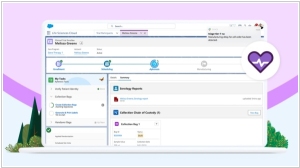Docker
Updated: July 31, 2023
Docker is an open-source platform that allows developers to easily create, deploy, and run applications in containers. Containers are lightweight, portable, and self-sufficient units that package all the necessary software, libraries, and dependencies required for an application to run. Docker simplifies the process of software development and deployment by abstracting away the underlying infrastructure and providing a consistent environment for applications to run, regardless of the host system. With Docker, developers can build, share, and deploy applications with ease, streamlining the development process and promoting consistency between development, testing, and production environments. Docker has revolutionized the way applications are developed and deployed, making it a fundamental tool in modern software development and enabling the adoption of microservices and containerization practices.
Docker is an open platform for developers and sysadmins to build, ship, and run distributed applications. Consisting of Docker Engine, a portable, lightweight runtime and packaging tool, and Docker Hub, a cloud service for sharing applications and automating workflows, Docker enables apps to be quickly assembled from components and eliminates the friction between development, QA, and production environments. As a result, IT can ship faster and run the same app, unchanged, on laptops, data center VMs, and any cloud.
See also: Top 10 Virtualization platforms
See also: Top 10 Virtualization platforms
2017. Docker offers native Kubernetes support
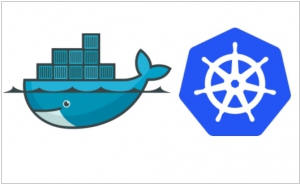
Kubernetes, the open-source tool created by Google, has emerged victorious in the container technology landscape. As a result, Docker has made an announcement to provide native support for Kubernetes. Although Docker is not completely abandoning its own orchestration tool, Docker Swarm, by offering native Kubernetes support for the first time, the company acknowledges the significant adoption of Kubernetes and the necessity to integrate it into their offerings. To mitigate any concerns regarding supporting a competing tool, Docker is introducing an architecture that empowers users to select their preferred orchestration engine at runtime. This means users can choose between Swarm or Kubernetes without requiring any code modifications.
2016. Microsoft expands its support for Docker containers
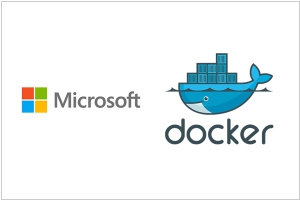
Microsoft has revealed its plans to expand support for Docker containers by integrating them more deeply into several of its enterprise and DevOps tools. Microsoft's keen interest in Docker is well-known, as evidenced by its inclusion of Docker support in the upcoming release of Windows Server and its development of its own Hyper-V container solutions. The company has even demonstrated the ability to run the Linux version of SQL Server in containers on Ubuntu. In line with these efforts, Microsoft has announced that Docker Datacenter, the subscription-based commercial platform offered by Docker, is now accessible through the Azure marketplace. This means that users can easily deploy and run a supported version of Docker on Azure.
2016. Docker acquired cloud infrastructure startup Unikernel Systems
Containers management startup Docker has made an announcement regarding the acquisition of Unikernel Systems, a startup dedicated to democratizing unikernels for developers. Docker intends to incorporate support for unikernels into its own tools and services, expanding its focus beyond containers to facilitate the creation of highly efficient microservices architectures. The financial details of the acquisition were not disclosed. Unikernels operate on the principle of streamlining the operating system to its bare essentials, enabling it to exclusively run a specific application without any unnecessary components. This approach involves compiling the required libraries directly into the operating system kernel, streamlining the application's execution.
2015. Docker adds new security tools for containers
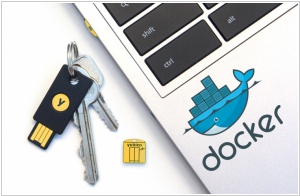
Docker has introduced three new security tools and features designed to enhance container security while maintaining a seamless developer workflow. These advancements aim to provide a safer container environment without disrupting existing practices. The first tool is hardware signing, which enables support for Yubico hardware keys. With this feature, Docker containers no longer require root access, as user namespaces support has been introduced. These two new functionalities are currently available in Docker's experimental release channel. Developers who possess a YubiKey 4 can now leverage automatic container signing to ensure the integrity of their applications throughout the pipeline. Docker collaborated with Yubico to integrate this touch-to-sign code signing system directly into the Docker command line tools. Additionally, Docker has made a significant commitment to security by initiating regular scanning of approximately 90 official repositories within the Docker Hub. This proactive measure allows Docker to identify potential vulnerabilities and publish its findings to ensure a more secure container ecosystem.
2015. Docker acquired container hosting service Tutum
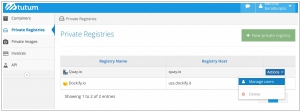
Docker has acquired Tutum, a cloud service that specializes in deploying and managing Docker containers across various environments, including both cloud-based and on-premises setups. Throughout its history, Docker has placed significant emphasis on the creation, packaging, and transportation of containers, often referred to as microservices. However, the management and operation of these containers have largely been left to individual developers. By acquiring Tutum, Docker is now able to offer a more comprehensive set of services to its customers, particularly focusing on the operational aspect of running containers. This acquisition strengthens Docker's ability to provide a complete solution as the product continues to mature, meeting the evolving needs of its user base.
2015. Docker makes containers more portable, wants to develop Common Container Standard
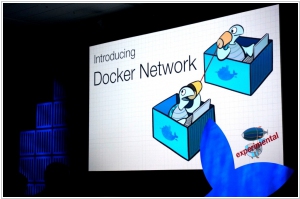
Docker is introducing several updates to enhance its software container solution. The most significant announcement is the introduction of the Open Container Project. This initiative aims to establish a standardized container format and runtime, supported by major industry players such as Docker, CoreOS, Microsoft, Google, Amazon, RedHat, and VMware. The Linux Foundation oversees this project, bringing together various stakeholders in the container ecosystem. Another notable addition is the Docker networking stack, which enables developers to seamlessly migrate their networked Docker containers across different platforms without the need to recreate the network infrastructure. This feature is largely influenced by Docker's acquisition of SocketPlane and the valuable feedback received from networking partners. SocketPlane provided developers with a software-defined networking layer that facilitates seamless connectivity among containers. As a result, Docker-based applications can effectively communicate across various networks and maintain portability across diverse network infrastructures.
2015. Docker raised $95M to fuel its cloud container platform
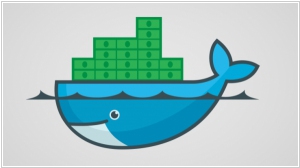
Docker, the company that played a significant role in popularizing containerization two years ago, has recently secured an additional funding of $95 million. The decision to raise this round of funding was driven by the company's commitment to meeting the growing demand from enterprises. Docker's strong buying intention score, as revealed in a recent Enterprise Technology Report surveying 685 enterprise CIOs, showcased its appeal among the respondents and marked the highest score recorded in the survey's six-year history. Notably, Docker Hub's ongoing beta phase boasts the participation of numerous Fortune 100 companies, accounting for approximately 50 percent of the current user base. The company is currently making substantial investments in both its go-to-market strategy and technology stack. This includes expanding the platform's capabilities by focusing on networking, security, and storage tools to enhance its service offering.
2014. Docker launches its first commercial product
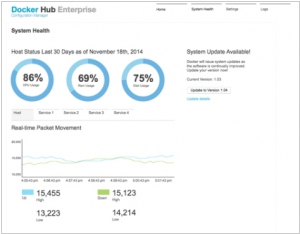
Container technology provider Docker has unveiled its inaugural commercial offering called Docker Hub Enterprise, which serves as a ready-to-use solution installable within a company's firewall. This product caters specifically to security-conscious organizations, particularly those in the financial services sector, by offering a starting point for implementing Docker in their enterprise environments. Notably, Docker has partnered with major industry players such as Amazon Web Services, IBM, and Microsoft. Additionally, Docker has introduced three new orchestration tools: Docker Machine, Docker Swarm, and Docker Composer. These tools streamline container management by providing prebuilt functionalities that simplify tasks previously requiring manual handling. In an additional collaboration, Docker has entered into a reseller agreement with IBM, allowing IBM to sell Docker products as a part of their offerings.
2014. Microsoft puts Docker on Windows desktops
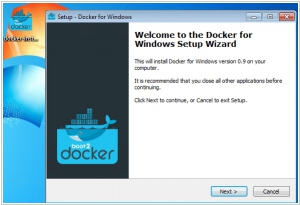
Microsoft users now have the ability to utilize Docker within a Windows environment and manage containers based on Linux using the new Docker Command Line Interface for Windows. Previously, there was no standardized method for running Docker on Windows, requiring developers to either rely on a Linux-based client CLI or use the boot2docker application, which sets up a customized virtual machine on a Windows machine containing the Docker daemon. Furthermore, Microsoft has introduced a Docker image for ASP.NET, now accessible on the Docker Hub. This development follows Microsoft and Docker's recent collaboration to ensure seamless integration of Docker with the Azure cloud and Windows Server.
2014. Microsoft and Docker team up to make containers play nice on Windows Server and Azure
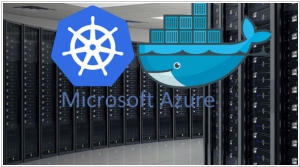
Microsoft and Docker have joined forces to ensure complete compatibility between Docker's container technology and the upcoming release of Windows Server. This partnership aims to provide developers with a native version of the Docker engine that operates seamlessly within the Windows environment. Previously, Microsoft enabled Docker usage on its Azure cloud platform, but developers had to perform several tasks to initiate container deployment. With this collaboration, the process of spinning up Docker containers on Azure becomes significantly simplified. Developers will no longer need to make modifications, as they will gain direct access to the Docker Hub within the Azure management portal, facilitating easy container deployment.
2014. Docker acquires testing-centric startup Koality
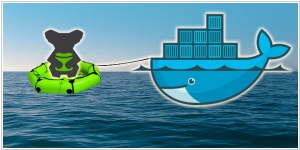
Cloud container platform Docker has acquired the startup Koality, aligning with its goal of simplifying application development through containers. Koality specializes in continuous integration (CI), a development practice that involves rigorous testing of a codebase to ensure the stability of software when deployed. The acquisition is a strategic move by Docker, as Koality's CI tool can assist developers in generating consistent and reliable code across various cloud servers. By integrating Koality's expertise, Docker aims to further enhance the development process and promote seamless application deployment.
2014. Cloud container technology provider Docker gets $40M in funding
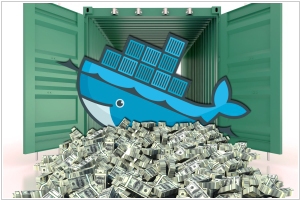
The open source Docker container platform, Docker, has successfully raised $40 million in Series C funding. This substantial investment underlines the significant value attributed to Docker's approach to container technology within both the investor community and the technology industry as a whole. Throughout this summer, the container-management startup has garnered attention from prominent cloud companies such as Google, Microsoft, Amazon, and VMware, who have demonstrated their support by ensuring compatibility between their platforms and Docker's container technology. Docker's platform simplifies the deployment of applications across diverse environments, eliminating concerns about potential conflicts between different application components, such as databases impacting other elements.


